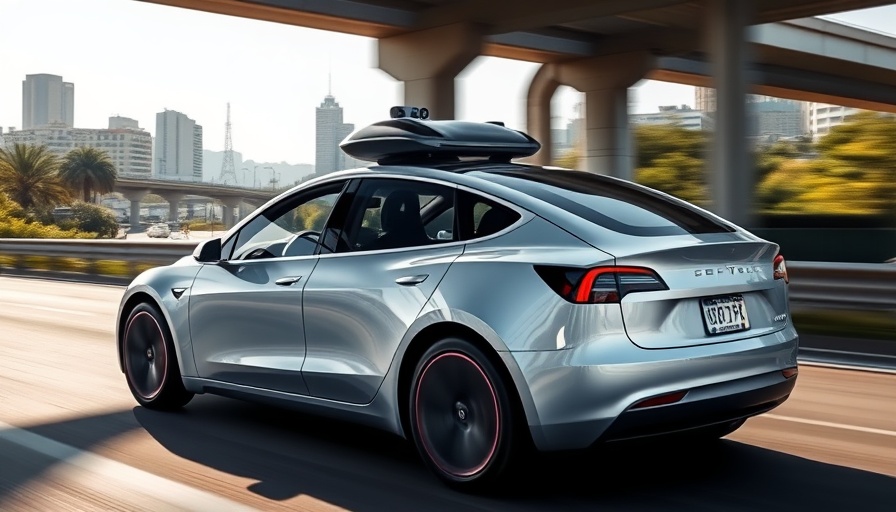
Revolutionizing Delivery: Tesla's Latest Leap Towards Autonomous Rides
In a bold demonstration of its cutting-edge technology, Tesla has showcased the capabilities of its self-driving software by sending a driverless Model Y on a remarkable 15-mile journey from its factory directly to the customer's doorstep in Austin, Texas. This event was a highlight following the launch of a limited robotaxi service, and it illustrates Tesla's relentless pursuit of advancements in vehicle autonomy. According to CEO Elon Musk, this marks the first "autonomous delivery" of a customer vehicle, an impressive milestone in the rapidly evolving landscape of transportation technology.
The Journey: A Test of Technology
The Model Y, equipped with Tesla's state-of-the-art robotaxi software, autonomously navigated a variety of complex situations, including merging onto highways and executing unprotected left turns, all while carrying no passengers on board. This feat not only paints a picture of what the future might look like but also raises questions about the journey of autonomous vehicles in day-to-day traffic, particularly considering the intricacies involved in such urban environments.
Comparative Perspectives: What are Other Companies Doing?
While Tesla garners a significant amount of attention for its autonomous advancements, it is not alone in this arena. Waymo, for instance, has also been testing autonomous vehicles in urban settings, providing them to employees for commutes in major cities like San Francisco and Phoenix. Similarly, Zoox has successfully navigated driverless trips across Las Vegas, demonstrating that the competition is heating up among tech giants in the autonomous vehicle sector. This burgeoning rivalry could lead to rapid advancements across the industry.
The Impending Financial Landscape
Despite the excitement generated by Tesla’s recent innovation, the company faces challenges, especially concerning its financial position. The upcoming release of the second-quarter delivery figures is expected to bear witness to a decline in sales from the previous year, a situation worsened by Musk’s controversial public engagements with political entities. Industry analysts are closely watching how these dynamics will influence Tesla's stock price and overall market performance.
Public Perception and Corporate Responsibility
As Tesla pushes the envelope on autonomous vehicle technology, public perception remains a pivotal factor. The idea of driverless cars becoming commonplace brings about a mix of excitement and apprehension among consumers. There is a tightrope that companies must walk—while showcasing technological accomplishments, they must also emphasize safety and reliability. Regulations surrounding autonomous vehicles continue to evolve, and companies are tasked with presenting concrete evidence that this technology can be both safe and responsible.
Future Predictions: Autonomous Vehicles and Urban Design
The implementation of autonomous vehicle technologies may shift urban planning paradigms significantly. As self-driving cars reduce the need for parking lots and increase roadway efficiency, city designs may increasingly prioritize pedestrian and bike-friendly spaces over vehicle storage. This potential transformation could herald a new era in urban architecture that emphasizes sustainability and enhanced living conditions.
Consumer Takeaways: Embracing New Technologies
For consumers, the unveiling of Tesla's driverless delivery opens discussions about the implications of adopting such technology. With advancements in automotive tech becoming part of everyday life, staying informed through reputable tech news sites can help consumers make educated choices about their transportation options and understand how these changes affect their communities.
As Tesla continues to innovate, it encourages consumers to embrace new technologies—not just for efficiency, but for exploring a future where transportation can be integrated into daily life without the burdens of traditional driving.
 Add Row
Add Row  Add
Add 



Write A Comment